Reportage

Photo: UNB
When the French ambassador, Marie Masdupuy took the stage as a keynote speaker on Saturday, she certainly meant business. After covering the wide sweep of the historic relationship between France and Bangladesh from the Battle of Plassey to the present day, the French Ambassador did not hesitate from stating the current state of France-Bangladesh bilateral relations: An imperfectly perfect one.
She was delivering the keynote at the latest edition of the Cosmos Foundation's Ambassador Lecture Series on Saturday, which returned to its in-person format for the first time since early 2020 and the onset of the COVID-19 pandemic.
Her frankness and honesty, however, didn't come without suggestions. Ambassador Marie Masdupuy, a distinguished French diplomat who has served in Moscow, Cairo, Brussels and Kabul, shared an array of suggestions on how to make this "imperfectly perfect" relationship an effective one.
The session titled "Bangladesh-France Relations: Prognosis for the Future" was chaired by the president of Cosmos Foundation, renowned scholar-diplomat Dr Iftekhar Ahmed Chowdhury, who served as Bangladesh's permanent ambassador to the UN in New York, as well as foreign affairs adviser to the last caretaker government.
During his opening remarks, Iftekhar Ahmed Chowdhury honoured French intellectual and politician André Malraux for his contribution during the Liberation War of Bangladesh.
Referring to the longstanding relationship between the French and the Bengalis he said: "Over two centuries ago, French Enlightenment began to influence us with ideas and ideals of reason and nature and humanity."
Enayetullah Khan, the chairman of Cosmos Foundation, kicked off the session by commemorating 51 years of bilateral relations. Referring to historical records regarding the beginning of the two countries' diplomatic relations within the first few months of Bangladesh winning independence.
It's quite impossible to think about any relationship or even assess the relationship between two states without a look at history. And so inevitably the discussion on the future prospects of France-Bangladesh relations started with a not-so-brief look at the history.
A long-standing relationship
During her keynote speech, the French ambassador highlighted the long-standing relationship between the peoples of France and what is now Bangladesh since the 17th century, when the first French traders came to this region.
"The French presence in Bengal was established in the 17th century. Trade was at the heart of the presence in this region," she said at the symposium.
Enayetullah Khan, in his opening remarks said, "The deep and longstanding ties between France and Bangladesh are evidenced by the existence of Farashganj in old Dhaka, which used to be home to a French market on the bank of Buriganga river dating back to the 17th Century."
He said the trade relations between Bangladesh and France continued to thrive in a variety of ways even after the disappearances of those centuries-old establishments.
Tariq A Karim, former Bangladesh Ambassador and High Commissioner to the US and India and Emeritus Advisor of Cosmos Foundation, expanded on the historic ties touched upon by previous speakers, relaying little-known stories from the French presence in Bengal, and India.
The French allied themselves with the Bengalis during the colonial era more along civilizational and intellectual lines than the British, who took a harder approach that might help the Brits edge France out of the Indian subcontinent, the former ambassador said.
Reducing bilateral trade imbalance, increase in investment
The speakers at the dialogue including the French ambassador emphasised reducing the trade imbalance between Bangladesh and France, which is actually lopsided in favour of Bangladesh, as well as creating a more attractive environment for French investments in Bangladesh.
France is Bangladesh's fifth largest export destination in the world, and third within Europe. In 2021, the bilateral trade amounted to $3.3 billion. During that period, Bangladesh's exports to France were worth $3.10 billion, while France's exports to Bangladesh stood at $191 million.
Calling the sheer volume of trade deficit 'detrimental to France', Ambassador Masdupuy emphasised exploring other avenues of trade.
She also addressed the issue of French investment in Bangladesh by highlighting the current contribution of Agence Française de Dévelopment (AFD) in the country.
The AFD, the French government's international development agency, is currently operating in 110 countries including Bangladesh with an annual commitment of around 12 billion euros - half of it in Africa and the rest in Asia, South America and the Middle East.
According to the ambassador, AFD has committed 1.4bn euros in the past 4-5 years in Bangladesh compared to India, Indonesia and Vietnam where the investment was respectively 2 billion euros, 1.7 billion euros, and 1.2 billion euros.
She lauded Bangladesh for having strong ownership of its development policy.
She also called on the authorities to work on easing the difficulties and hurdles "confronting French companies already here or wishing to establish themselves in Bangladesh for commercial or investment purposes."
Parvez Karim Abbasi, Assistant Professor of Economics at East West University also emphasised on exploring diversification of exports to France, holding up the bright prospects of the light engineering sector to enter the French market.
He also highlighted possible avenues for France to invest in Bangladesh, mainly in the areas of cosmetics, nuclear energy, automobiles, urban planning, and defence.
"The French have expertise in nuclear power plants, and this is one area where we would require more help in the future. Reliance on LNG to run our quick-rental power plants has been misjudged. And imports from neighbouring countries also depend on political whims and changing regimes. So we need indigenous power generation capacity. This is where we can actually cooperate with the French."
On possible cooperation in terms of urban planning and development, Parvez said: "As the population is growing in Bangladesh, it will never be concentrated only in Dhaka and Chattogram."
"There will be smart cities, and there will be a need for smart cities. And the French are world class in constructing bullet trains. Urban planning is another area where we could cooperate," he said.
He further emphasised on possible cooperation with the French in marine engineering, or offshore hydrocarbon exploration, power generation etc.
Professor of International Relations at Dhaka University, Lailufar Yasmin, highlighted France's contribution to Bangladesh's development and urged the ambassador to emphasise the convenience of doing business in Europe for Bangladeshi businessmen.
Growing appetite for defence and security cooperation
Among other issues, the French ambassador also highlighted the growing "appetite" of Bangladesh Armed Forces to acquire defence equipment from France.
"In the field of security and defence, there's a clear appetite of Bangladesh Armed Forces to acquire French equipment as a high quality answer to their needs. But the financing side is an issue. So, let's hope it will change," she said.
She hoped for a change in Bangladesh Armed Forces' policy of procuring defence equipment which, she described as a "very one-sided situation", referring to the small number of vendors the government deals with in this regard.
Shafqat Munir, Research Fellow at Bangladesh Institute of Peace and Security Studies (BIPSS), held up numerous instances of cooperation between the two countries' centres of excellence in the security sphere, and called for more such initiatives.
"One of the areas we can really look at for cooperation is enhancing cooperation in military training/ Education. We can enormously gain from your expertise," Shafqat said while addressing the session.
He also emphasised cooperation in terms of peacekeeping operations in Africa, mainly in the Sahel region.
"There's tremendous need and opportunities to cooperate in Peacekeeping. Most of our peacekeeping contingents are stationed in French speaking African countries. There's also a scope for us to get specific language training from France," he said.
Shafqat believes there'd be a real opportunity for Bangladesh to send its officers and military personnels to France to gain strategic understanding of those countries as the French expertise in that region is "perhaps the highest in the world."
Understanding the importance of maritime security cooperation with France, he said: "We should have much more in terms of maritime security cooperation. Whether it is in terms of training our navy personnel, building vessels or sharing technology or in terms of getting a better insight into France's insight into maritime strategy."
Shafqat Munir addressed the issue that was previously highlighted by the French ambassador on the procurement of defence equipment by the Bangladesh Armed Forces.
"Bangladesh Armed Forces are modernising and therefore looking at other avenues in terms of sourcing defence hardwares. Bangladesh doesn't want to confine itself to one or two countries in this regard. Therefore I think there's an opportunity for France to help procure other types of equipment as well," he said.
He also emphasised on cybersecurity cooperation with France.
On Indo-Pacific and beyond
During her address, the French ambassador highlighted the future prospect of France-Bangladesh cooperation in promoting an open, democratic, and inclusive Indo-Pacific region for all.
Ambassador Masdupuy said, "The French strategy in the Indo-Pacific is different from that of other countries. It's a balanced one as shown by its emphasis on the blue economy, sustainable fisheries, green port and connectivity; all these issues belong to our country's Indo-Pacific agenda. On such shared goals with Bangladesh, we can build up, construct and co-create the agenda for the region."
For Tariq A Karim, Bangladesh is at the epicentre of Indo-pacific which is gradually becoming a hotspot competition or even fierce contention. According to him, Bangladesh will be subjected to a lot of pressure from the great powers to pick a side.
"For a country of our size and of our resources, we need to develop a certain stage of resilience to be able withstand those pressures. And this is where France can help us to develop that intrinsic and internal resilience. Otherwise, we'll be crushed by the two nutcrackers (Regional: India and China; Global: Into-Pacific and the BRI)," he said.
He also lauded French policy of not aligning itself with any of the new groupings that have emerged such as QUAD, AUKUS.
Meanwhile, highlighting the similarities between France and Bangladesh's strategy for Indo-Pacific, Professor Lailufar Yeasmin said: "Bangladesh's Indo-Pacific outlook takes very much cue from the French Indo-Pacific outlook where Bangladesh doesn't look at only hard security but looks at the soft security aspect."
She also highlighted the importance of addressing the Rohingya issue which is at the centre of Bangladesh's Indo-Pacific Strategy.
The Rohingya issue is at the heart of Bangladesh foreign policy along with the Indo-Pacific issue. And Bangladesh looks at how this issue not only can be resolved but what are ways that the repatriation of Rohingyas in Myanmar is safe and sustainable so that Bangladesh doesn't have to go through this once again in future."
The French ambassador expressed her desire to intensify the international pressure campaign against the Myanmar junta to ensure the sustainable repatriation of the Rohingya people in Myanmar.
While addressing a question by Nojibur Rahman, former principal secretary to Prime Minister Sheikh Hasina, on France's position on AUKUS or QUAD, Ambassador Masdupuy said the formation of QUAD was like "a stab in the back" by the three countries: The US, Australia and the UK.
"It went very bad. and It took months before we started engaging (with the West) again on strategic important issues. The confidence (in western alliance) was completely destroyed."
She also expressed doubt over the goals, feasibility and overall potential of the AUKUS partnership.
At the dialogue, the French ambassador also hoped for greater cooperation with Bangladesh on both global and regional issues such as climate change, fight against terrorism, green energy transition among others.
The session was attended by academics, civil society members and members of the media.






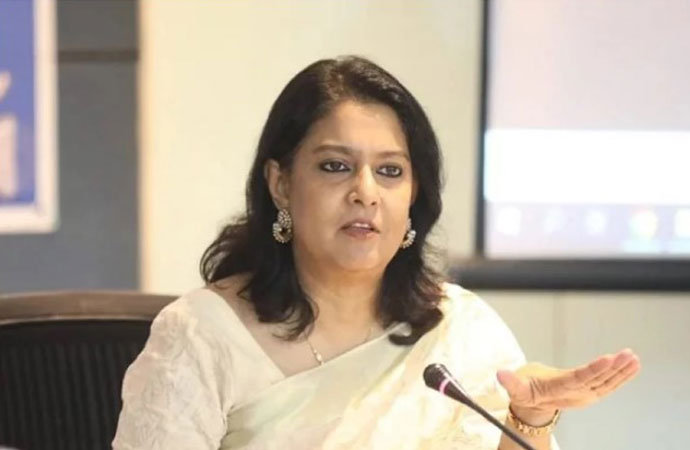

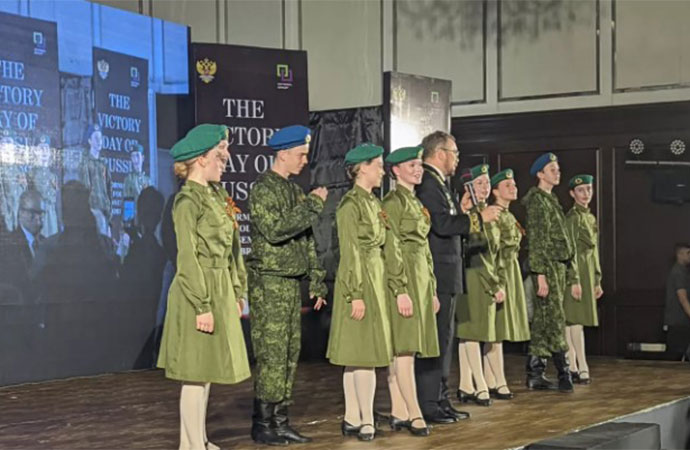
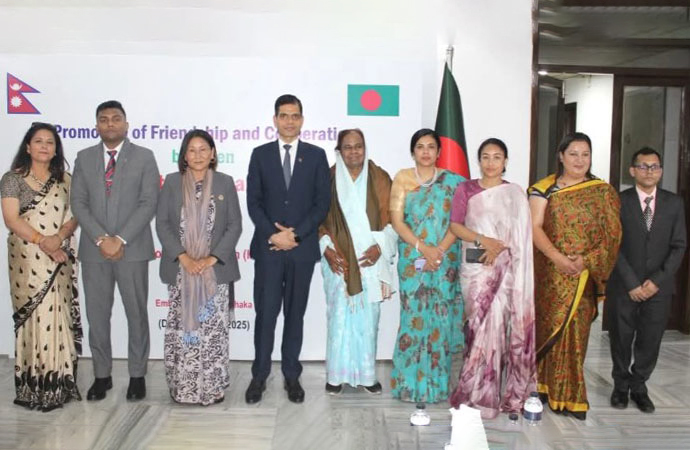









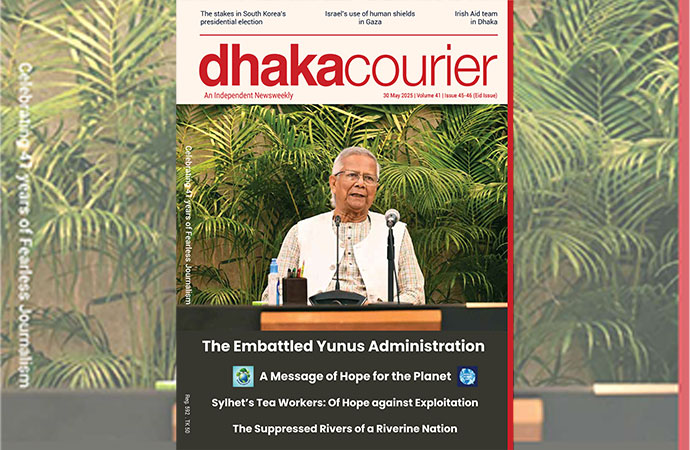
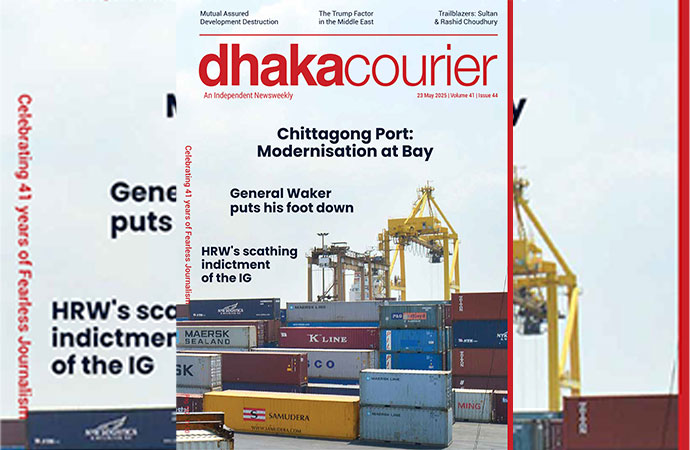
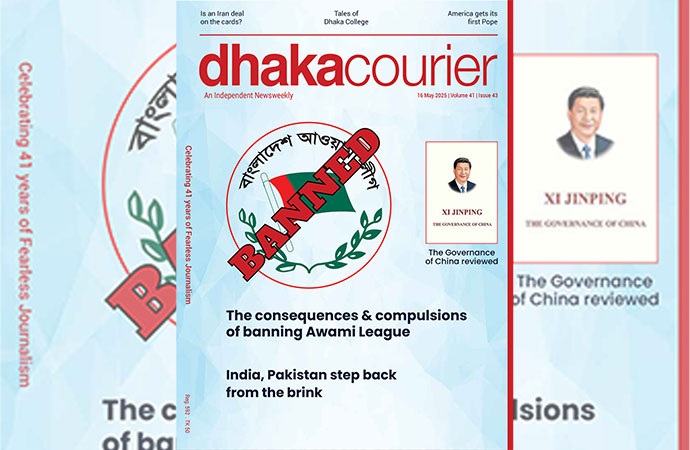
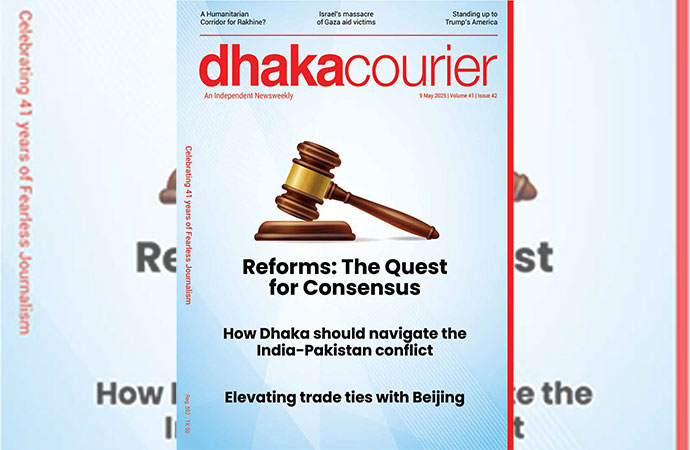
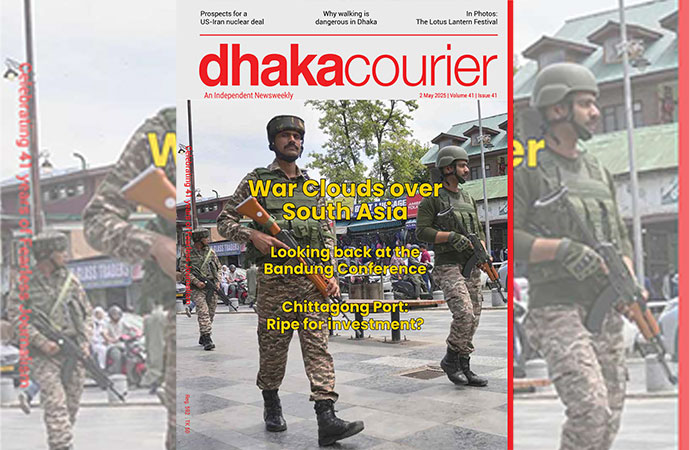
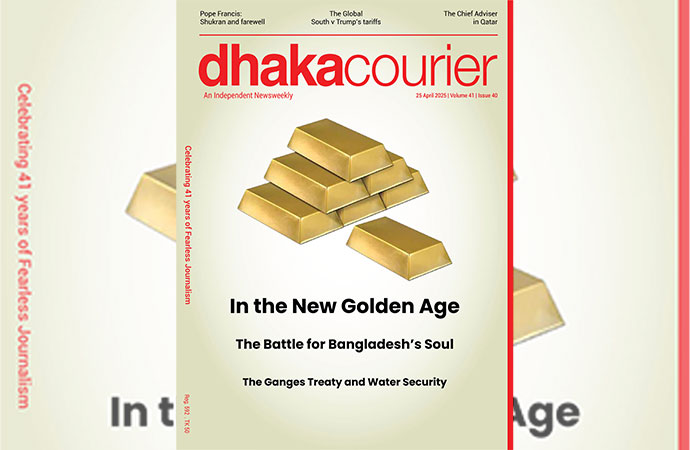
Leave a Comment
Recent Posts
Enayetullah Khan to represent ...
Enayetullah Khan, Editor-in-Chief of United News of Bangladesh (UNB), ...
The tragedy in Ahmedabad touch ...
Air crashes are inherently international incidents, and the emotions t ...
Asset recovery a key focus; breakthroughs from talks ..
'It'll inspire youths to build Bangladesh they dream ..
UK envoy Sarah Cooke happy with Yunus’ visit to Brit ..
Prof Yunus honoured with prestigious Harmony Award b ..